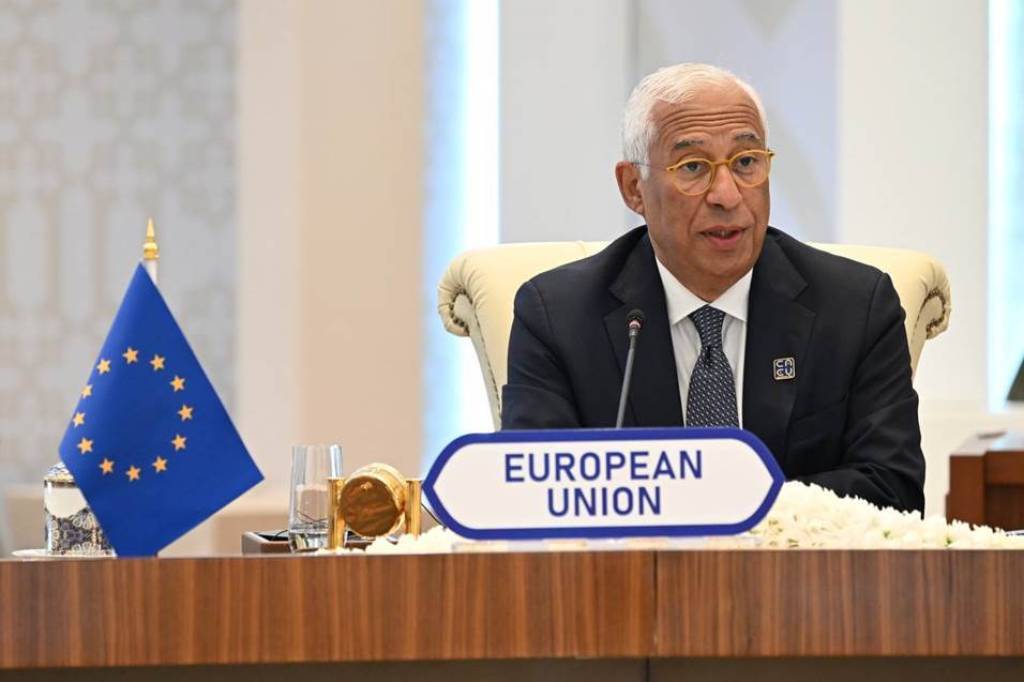
Uzbekistan recently hosted the first “Central Asia – European Union” summit.
The key outcomes of the forum were reflected in the final joint declaration.
Uzbekistan’s active foreign policy, its successful hosting of prestigious international forums and conferences, and its pursuit of an equal and constructive dialogue with leading nations are all contributing to the country’s growing authority on the global stage.
Leaders of the European Union and the Central Asian Five put forward several proposals in Samarkand aimed at strengthening cooperation between the two regions. The President of the European Council, António Costa, emphasized the EU’s readiness to build a mutually beneficial, deep, and forward-looking partnership with the region.
“I extend my sincere gratitude to the President of Uzbekistan, Shavkat Mirziyoyev, for the warm hospitality and the welcome extended in this beautiful country”, said António Costa. “It is symbolic that our first summit is taking place in ancient Samarkand – a key center of the region. I am proud to witness a new chapter in the modern history of the Pearl of the East. Our cooperation is now reaching a new strategic level.
This year marks the 30th anniversary of the establishment of diplomatic relations between the European Union and the five Central Asian states. It is time to fully recognize the significance of the strong ties that bind us. In today’s international context, the role of a rules-based, effective, and equitable multilateral system is more valuable than ever.
Our meeting has opened the door to further strengthening multilateral partnerships and reaffirming our shared commitment to a prosperous world order. It is especially noteworthy that Uzbekistan hosted the Samarkand Climate Forum. This initiative underscores the pressing need for collaboration in addressing global challenges, such as climate change and water resource management – issues of paramount importance to the region. We can address the pressing threats of our time only through unity and joint action.
The European Union is one of the leading investors in Central Asia and the region’s second-largest trading partner. The time has come to elevate our cooperation to an even higher level. Climate change necessitates strengthened collaboration not only in the interest of the region but also for global stability, security, and prosperity. Water scarcity, air pollution, environmental degradation, and biodiversity loss are serious threats that affect us all.
In recent years, the EU has intensified its engagement through the Central Asia Strategy adopted in 2019, the Cooperation Roadmap approved in 2023, and the Global Gateway initiative. We are now exploring new areas of collaboration in digital technologies, transport, and raw materials. It is our responsibility to enhance the effectiveness of our strategic partnership and to build a results-oriented framework. In today’s world, security challenges are deepening. These threats are transboundary, and no region is immune. Therefore, it is essential to strengthen cooperation at all levels, including bilateral, regional, and international.
The EU has been a longstanding partner of Central Asia in the realm of security. Our programs on border management and counter-narcotics reflect our firm commitment to the region. We are also working together to disrupt the financial sources of terrorism and to prevent radicalization. Regularly conducted anti-narcotics operations have helped strengthen cooperation in this area. I am particularly pleased with the agreement to launch a dedicated dialogue on counter-terrorism and violent extremism. This is a crucial step in addressing a shared security threat.
On this occasion, I would also like to congratulate Kyrgyzstan and Tajikistan on the signing of a historic border agreement. This is a significant achievement not only for the two countries but for the entire region. In these turbulent times, such an example of peaceful conflict resolution is especially needed.
The threats related to Afghanistan – terrorism, violent extremism, and drug trafficking – pose a serious danger to Europe as well. Central Asia has extensive experience in combating these challenges, and therefore, we can work together to ensure stability in the region.
In today’s world, the spread of fake news is intensifying. The European Union takes this threat very seriously and is committed to strengthening the resilience of both its internal and external partners.
A new opportunity has emerged in Ukraine to achieve a just and lasting peace. We must support this process together. The European Union stands ready to contribute. The principles enshrined in the UN Charter are not merely words on paper. They represent our shared commitment to securing peace for humanity and the well-being of all nations.
Our first summit is a vivid example of how trust-based regional cooperation can serve a stabilizing role on the global stage. The European Union is ready for a mutually beneficial, deep, and forward-looking partnership with your region. We look to the future with hope and confidence, fully embracing our motto: “Investing in the Future”.
Our relationship has never been stronger. Now is the time to aim even higher. Together, we will write new chapters in our shared strategic partnership.
Interviewed by Bekhruz Khudoyberdiyev, UzA








